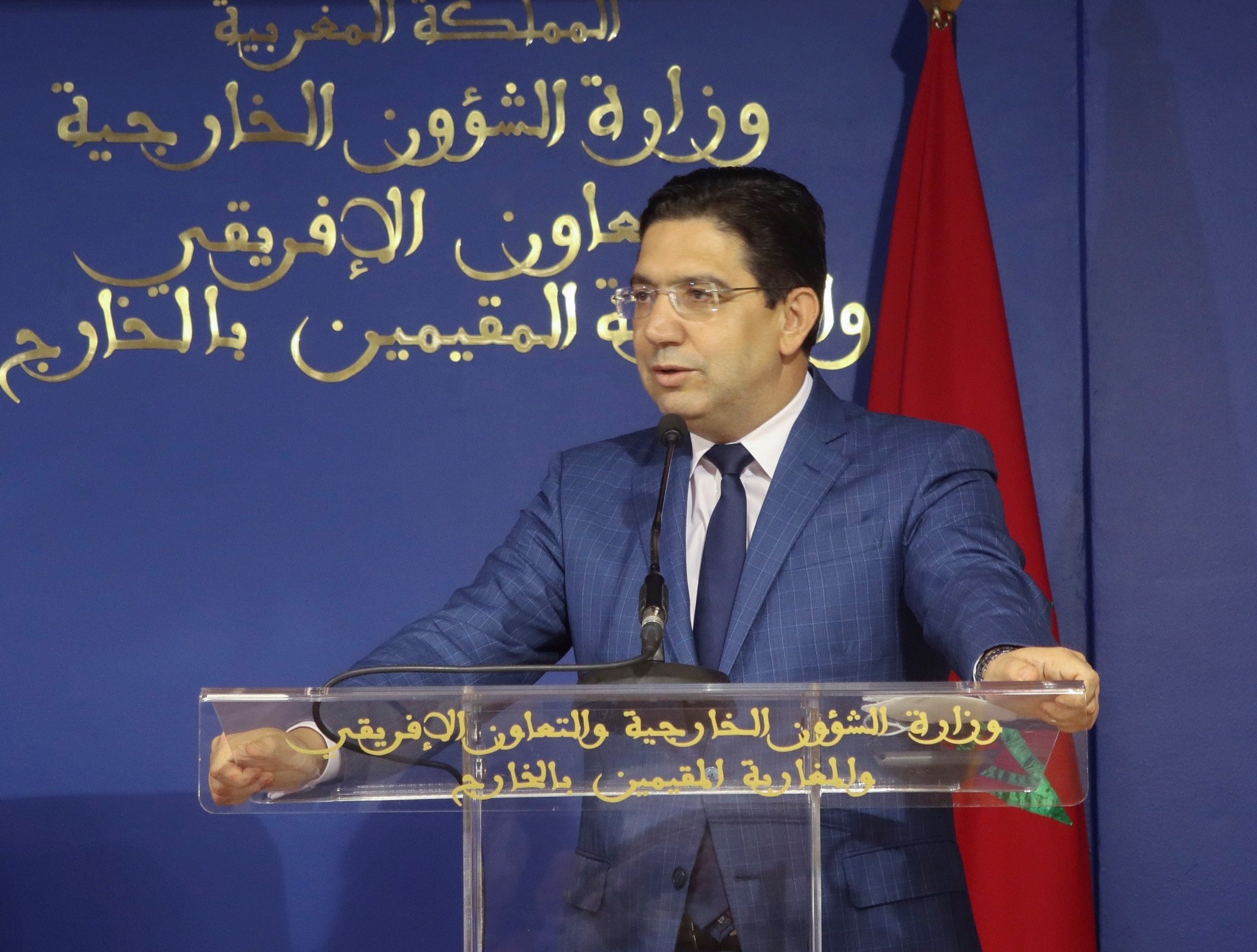Although the Polisario Front leader Brahim Gali is no longer in Spanish territory, Morocco continues to give warnings - practically, threats - to Spain that the crisis which last month saw migrants flooding into the Spanish territory of Ceuta is not over. This is the message that Moroccan foreign minister, Naser Burita, has given this Wednesday.
"The crisis is there because its root causes continue," Burita said at a joint news conference with his Hungarian counterpart Peter Szijjarto. The Moroccan leader reiterated, however, that the crisis is "bilateral", seeking to avoid pulling in the European Union.
"It is first and foremost a crisis of mutual trust, linked to an attitude that Morocco considers contrary to the spirit of partnership: the bottom line is the coherence between your actions and your words about separatism. You cannot prohibit it in your own country and encourage it in your neighbour's", he said, linking the Catalan independence issue and the cause of the Sahrawis in Western Sahara, former Spanish colony which is claimed by Morocco. It was the visit to Spain for health care by Sahrawi leader Brahim Gali which angered Morocco into opening its Ceuta border.
"Favours" in opposition to Catalan independence
Indeed, at one of the tensest points of the diplomatic crisis, Morocco reminded Spain of the "favours" it did for its northern neighbour with regard to Catalan independence. "Our policy with Spain has always been clear. During the Catalan crisis, Morocco did not opt for neutrality, but was one of the first to side with the territorial integrity and national unity of its neighbour in a clear and forceful manner," the foreign ministry said in a statement.
In fact, the Moroccan ministry had no complexes in revealing some of these favours: "What would Spain's reaction have been if a representative of Catalan separatism had been received by the Moroccan royal palace? In 2012, an economic delegation of the Catalan government asked to visit us and we decided to modify the programme, at the request of the Spanish government, so that this delegation was not received at a high level and all interviews were conducted in the presence of a representative of the Spanish embassy in Rabat", said the statement. "In 2017, we followed the same conduct and rejected the request for a visit and a meeting of a major leader of Catalan separatism," added the ministry.
Not involving Europe
In these new statements, the Moroccan minister stressed the idea that the crisis is limited to his country and Spain, in order to leave the EU to one side. "Trying to Europeanize this crisis is just perpetuating it, a way of diverting attention," said Burita, adding that his country "is satisfied with its relationship with the European Union and its multifaceted cooperation with it."
However, the European Parliament will vote tomorrow on a motion - ignored by Burita today - on "the use of children by the Moroccan authorities in the migration crisis with Ceuta" and the possibility that this constitutes a violation of the UN convention on children's rights.
Moreover, despite Rabat's interest in keeping Brussels on the sidelines, the European Commission recently reiterated its position in favour of UN resolutions calling for a resolution of the Sahrawi conflict through a referendum on self-determination.
Main image: Morocco's foreign minister, Naser Burita / Photo: Efe

